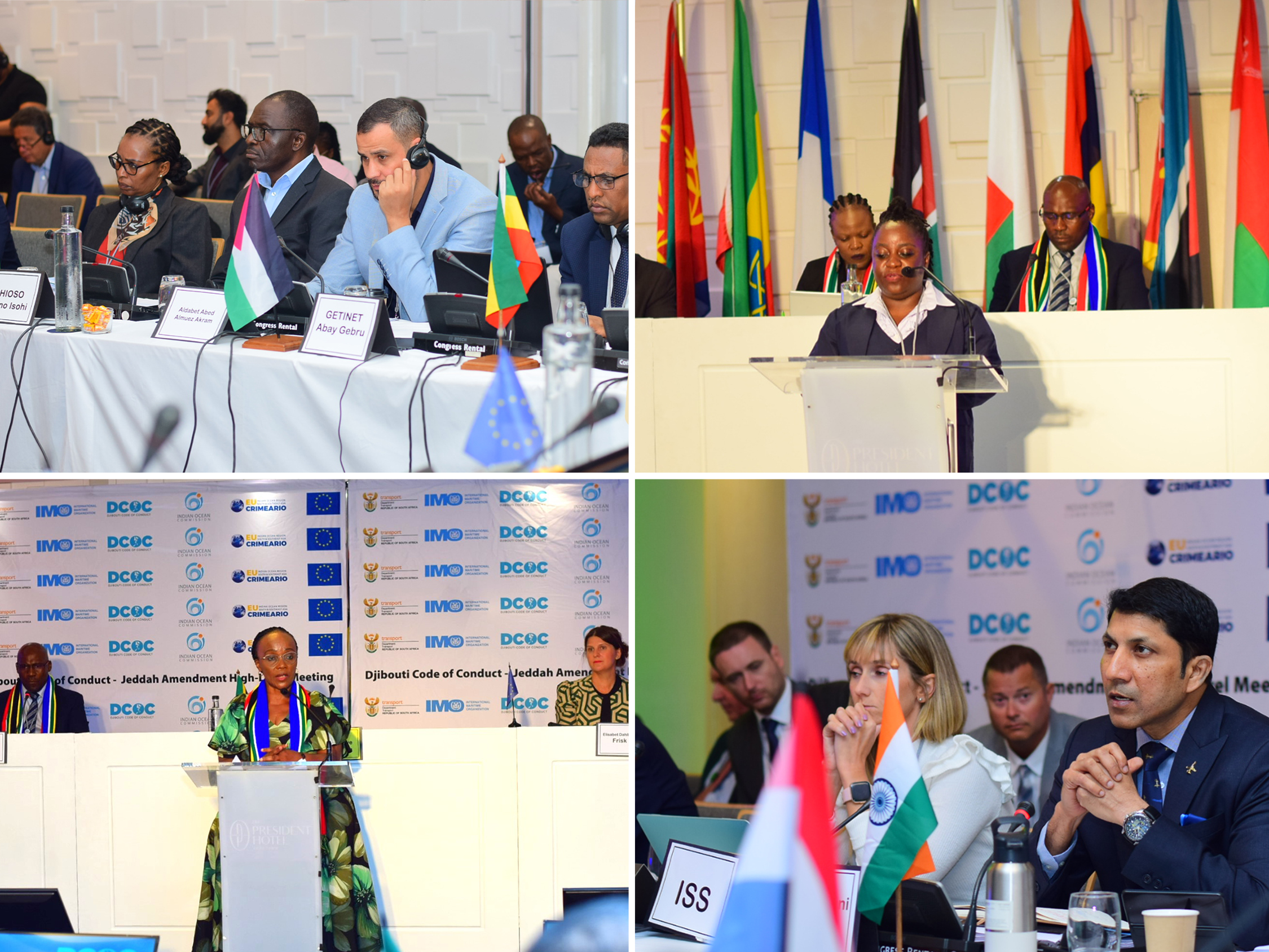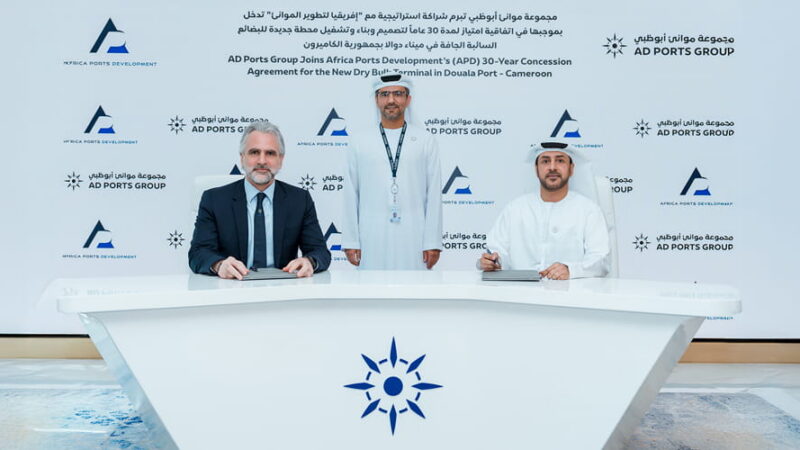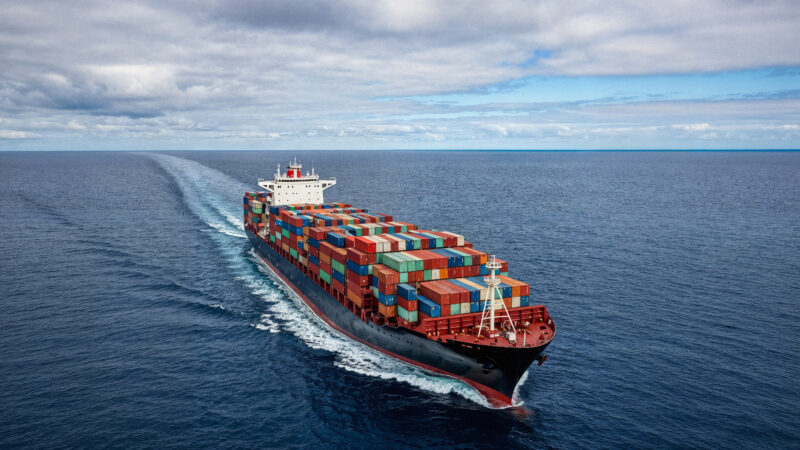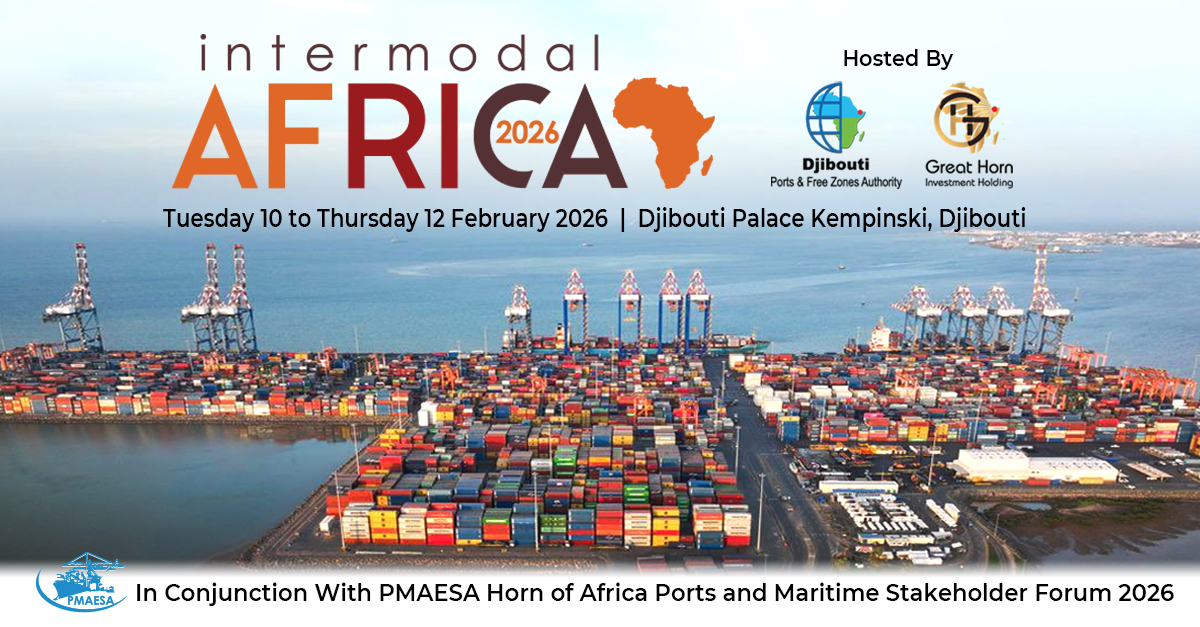Strategic approach to implementing Djibouti Code of Conduct on maritime security
States around the western Indian Ocean and Gulf of Aden have agreed to develop a common regional maritime security strategy. The aim is to achieve increased prosperity through the adoption of a multi-agency, multi-disciplinary approach to maritime security, governance and law enforcement.
The Signatory States to the Djibouti Code of Conduct (DCoC) and its Jeddah Amendment concerning the security of the western Indian Ocean and Gulf of Aden were meeting at the Sixth High-level Regional Meeting on the implementation of the Jeddah Amendment to the Djibouti Code of Conduct in Cape Town, South Africa (24-26 October). The meeting brought together high-level stakeholders to discuss how to continue to work together to protect the region from piracy, armed robbery against ships and other illicit maritime activities.
The meeting also agreed to expand the scope of Working Group 2 on Capacity Building Coordination, to include seven thematic working groups on transnational maritime threats, as provided under the Jeddah Amendment to the Djibouti Code of Conduct.
The meeting adopted three resolutions:
Resolution 1 Operationalization of the DCoC/JA Information Sharing Network
The meeting adopted the mission and vision of national maritime information sharing centres (NMISCs), with DCoC Standard Operating Procedures (SOPs) to facilitate coordinated, timely, and effective information flow among the Participants, to promote communication, coordination and cooperation, both civilian and military.
Resolution 2 Development of a DCoC Signatory States’ Maritime Security Strategy
Besides establishing National Maritime Security Committees (NMSC) and National Maritime Information Sharing Centres (NMISC) in each member State through the IMO Maritime Security Governance project, participants committed to develop a Regional Maritime Security Strategy, to steer implementation of the DCoC/JA and coordinate activities of competent agencies through inter-agency cooperation.
Resolution 3 Establishment of thematic sub-working groups for WG 2 on capacity building coordination
The establishment of sub-working groups responsible for coordinating various thematic areas encompassed in Article 2 of the Code of Conduct was approved. This expansion aims to integrate existing mechanisms, avoiding redundant efforts. The sub working groups will cover:
1. IUU (Illegal, Unreported, and Unregulated Fishing), chaired by Tanzania
2. Port and ship security and protection of coastal installations, chaired by Ethiopia
3. New and emerging threats to maritime security, chaired by Oman (chair to be confirmed)
4. Trafficking in arms, narcotics and psychotropic substances, chaired by Madagascar
5. Illegal trade in wildlife and other items in contravention with the Convention on International Trade in Endangered Species of Wild Fauna and Flora (CITES), chaired by Kenya
6. Threats to maritime environment, chaired by Mauritius
7. Human trafficking and smuggling, chaired by Maldives
(Download full texts here)
Ms. Heike Deggim, Director, Maritime Safety Division, addressed the meeting on behalf of the IMO Secretary-General Kitack Lim. She described the Djibouti Code of Conduct/Jeddah Amendment as “an indispensable element for the assurance of regional maritime safety and security.”
Ms. Deggim said:
“Despite the reduction in piracy and armed robbery incidents against ships in the region since 2012, vices such as illegal, unregulated, and unreported fishing (IUU), human trafficking and smuggling, marine pollution, wildlife trafficking, and crude oil theft remain prevalent. Additionally, new and emerging threats, such as cyber-attacks against ships and maritime business, as well as innovative methods targeting vital coastal installations using drones and mines, are evolving issues that demand our consistent attention and collaborative efforts.”
Ms. Heike Deggim then used her address to call for more financial support following a drop-off in contributions to the DCoC multi-donor Trust Fund: “The International Maritime Organization will continue to support the DCoCJA, and I fervently call upon the Friends of the DCoC and IMO Member States in this meeting to provide financial and technical support to Member States in the implementation of the Code of Conduct,” she said (Full speech here).
Other high-level speakers included: HE Ms. Sindisiwe Chikunga, the South African Minister of Transport, HE. Ms. Aishath Nahula (Minister of Transport and Civil Aviation of Maldives), Mr. Ali Mohammed Al-Subhi (Deputy Minister, Department of Ports and Maritime Affairs, Yemen), Mrs. Elisabet Dahlberg Frisk (Head of the EU Delegation).
The meeting was attended by 77 participants from 14 DCoC Signatory States and 17 observers, including the European Union, Denmark, India, Indian Ocean Commission, United States of America and the United Kingdom.
Over the three days of the meeting, there were sessions held on:
- Creating synergies between the DCoC/JA and other regional capacity building initiatives.
- Proposals for enhancement of the DCoC Information Sharing Network
- Utilizing the DCoC ISN to support operations at sea against illegal activities
- and aligning international efforts with regional needs and priorities.
Governance framework
The implementation of the DCoC(JA) is delivered under a governance framework that comprises of a Steering Committee, a Working Group on Information Sharing and a Working Group on Capacity Building Coordination.
The Republic of South Africa was elected Chair of the Steering Committee, with the Kingdom of Saudi Arabia as Deputy Chair. Yemen is the new Chair of the Working Group on Information Sharing, with Comoros as Deputy. Seychelles is Chair of the Working Group on Capacity Building Coordination, with Somalia as Deputy.
Parallel Meeting – Friends of the DCoC
The Friends of the DCoC is a formally recognized platform of Organizations and/or countries committed to, and capable of making a substantial contribution to, the work of the DCOC(JA). The meeting discussed ways to support the implementation of the DCoC/JA in the context of both the proposed drafting of a regional maritime security strategy and the proposal to form thematic sub-working groups for Working Group 2 on Capacity Building Coordination. The Strategy would consider making best use of the assets and capabilities available to signatory States.
Specific offers of assistance in relation to the thematic areas were made by the Friends of DCoC.
Background
The Djibouti Code of Conduct was adopted in 2009 to bring States in the region together to tackle piracy and armed robbery against ships. Over time, the Code has seen its scope significantly broadened to cover emerging maritime threats including illegal, unreported and unregulated (IUU) fishing and the trafficking of people and weapons. In 2017, DCoC signatories adopted a revised Code of Conduct, known as the Jeddah Amendment to the Djibouti Code of Conduct 2017 (DCoCJA).The Jeddah Amendment builds on the earlier Code, which was adopted in 2009, and calls on signatory States to cooperate to the fullest possible extent to repress transnational maritime crime of all kinds.
More details on the DCoC High Level Meeting can be found here.
Source : IMO






